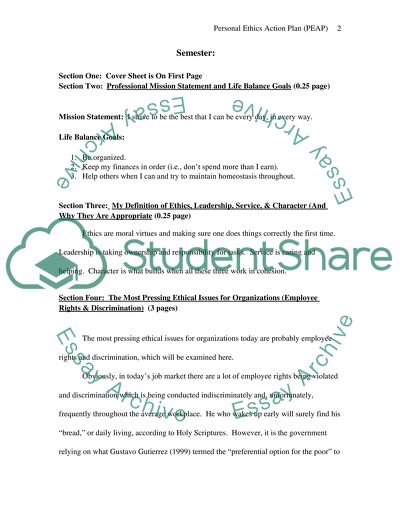Cite this document
(“PERSONAL ETHICS ACTION PLAN Essay Example | Topics and Well Written Essays - 2000 words”, n.d.)
Retrieved from https://studentshare.org/environmental-studies/1425380-personal-ethics-action-plan
Retrieved from https://studentshare.org/environmental-studies/1425380-personal-ethics-action-plan
(PERSONAL ETHICS ACTION PLAN Essay Example | Topics and Well Written Essays - 2000 Words)
https://studentshare.org/environmental-studies/1425380-personal-ethics-action-plan.
https://studentshare.org/environmental-studies/1425380-personal-ethics-action-plan.
“PERSONAL ETHICS ACTION PLAN Essay Example | Topics and Well Written Essays - 2000 Words”, n.d. https://studentshare.org/environmental-studies/1425380-personal-ethics-action-plan.


